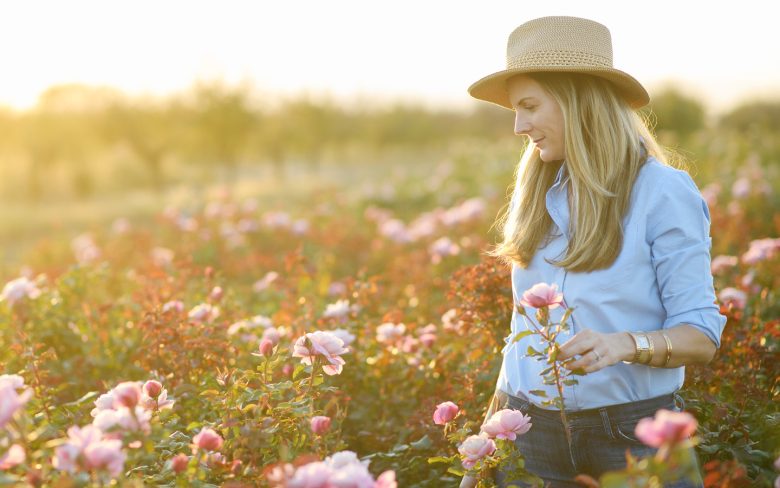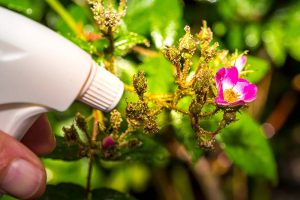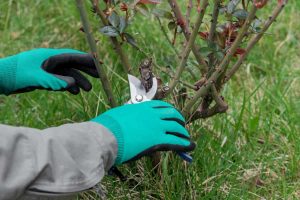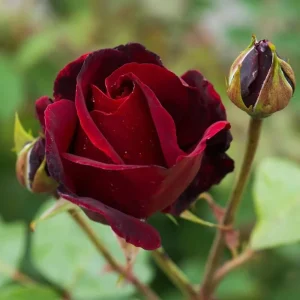Roses have long captivated people’s hearts with their timeless beauty and captivating fragrance. Whether adorning a garden, adding charm to a balcony or celebrating a special occasion, these iconic flowers hold a special place in the botanical world. Understanding the art of fertilizing roses is essential to nurturing the health and vigor of these delicate blooms. In this guide, we dive into the secrets of fertilizer for roses and provide an insight into its types, uses and benefits.
The Magic of Rose Fertilizer:
A thriving rose garden needs more than sunlight and water, it needs the right nutrients. Rose fertilizer is a specially formulated mixture designed to provide optimal nutrition to these delicate plants. Rose fertilizer is a blend of essential elements such as nitrogen, phosphorus, potassium and micronutrients to support strong growth, vibrant blooms and disease resistance in roses.
Types of Fertilizer for Roses:
- Granular Fertilizers: These slow release fertilizers provide a steady supply of nutrients over an extended period of time. They are easy to use and ideal for both novice and experienced gardeners.
- Liquid fertilizer: Liquid fertilizer for roses works quickly and is easily absorbed by plants and can be sprayed on the soil or leaves. They provide a quick boost of nutrition and are perfect for restoring tired or stressed roses.
- Organic Fertilizer: For those who prefer a natural approach, organic rose fertilizer comes from plant and animal sources. They enrich the soil, improve its structure and improve the long-term health of the soil.
- Special fertilizers: Some fertilizers are tailored to specific rose varieties (such as hybrid teas or climbing plants) to meet their unique nutritional needs.
Application Technology:
- Before planting: Before planting roses, add a balanced granular fertilizer to the soil to create a solid base for rose growth.
- Fertilize Regularly: During the growing season, fertilize roses every 4-6 weeks with a balanced fertilizer to maintain healthy foliage and flowers.
- Foliar fertilization: Applying liquid fertilizer directly to the leaf surface allows nutrients to be absorbed more quickly, especially during times of high demand.
- Deep Root Fertilization: Uses specialized tools to deliver nutrients directly to the root zone, promoting deeper root growth and overall plant resilience.
Benefits of Using Rose Fertilizer:
- Blooming Flowers: Properly nurtured roses will produce an abundance of radiant blooms that create a stunning visual spectacle.
- Good plant health: well-nourished roses are more resistant to pests, diseases and environmental stress, making them last longer.
- Improves Aroma: The nutrient-rich soil imparts a rich and captivating aroma to roses, making them truly captivating.
- Extended flowering period: Regular fertilization extends flowering so that you can enjoy your roses for longer.
Maintenance Tips for Fertilizing Roses:
- Pruning: Prune rose bushes regularly to remove dead or diseased growth. Not only does this improve the overall appearance of the plant, it also promotes new growth and better utilization of nutrients.
- Mulch: Apply an organic mulch around the base of the rose. Mulch helps retain soil moisture, regulate temperature and prevent weed growth. As the mulch breaks down, it adds valuable nutrients to the soil.
- Watering: Adequate and consistent watering is essential for nutrient absorption. Make sure your roses are soaked deeply so that the water can reach the root zone. Avoid overhead watering, which promotes disease.
- Soil Test: Regularly test the pH of the soil to make sure it is in the optimal range for growing roses (pH 6.0 to 6.5). Adjusting soil pH as needed ensures efficient nutrient uptake.
- Companion plants: Consider planting companion plants near roses, which can improve soil health or deter pests. Lavender, chives, and marigolds are all good plants for roses.
- Seasonal adjustment: Adjust the fertilization program to the season. Roses have different nutritional needs when they are actively growing and when they are dormant.
Avoiding Common Fertilization Mistakes:
- Over-fertilizing: Over-fertilizing can lead to a buildup of salt in the soil, which can damage the root system. Follow the recommended dosage and schedule.
- Insufficient fertilization: Insufficient nutrients can lead to slow growth and poor flower production. Be consistent with your fertilization protocol.
- Fertilize before the rain: Fertilizing before a heavy rain can lead to nutrient runoff, wasting valuable nutrients and possibly water pollution.
- Ignoring soil conditions: Different soil types have different capacities to hold nutrients. Adjust the fertilization method to the soil characteristics.
Share the Joy of Roses:
The journey of growing a rose is not only a personal gain, but also a great opportunity to share its beauty with others. Consider the following ideas to spread joy:
- Community Workshops: Host a workshop or online tutorial to teach other enthusiasts about rose care, including proper fertilization techniques.
- Floral Gift: Spread happiness and fragrance by surprising friends and family with your lovingly grown rose bouquet.
- Social Media Sharing: Inspire others to start their own floral journey by showcasing your beautiful rose garden on social media platforms.
- Local Flower Shows: Attend local flower shows to showcase your roses and share your expertise with a wider audience.
Conclusion
In short, the art of rose fertilization is key to unlocking the full potential of these fascinating flowers. With the right knowledge and care, you can create a beautiful rose garden with vibrant blooms, an enchanting fragrance and long-lasting beauty. By embracing the magic of rose fertilizer and following expert maintenance tips, you will cultivate a garden that not only brings you joy, but also enriches the lives of those around you. Let your passion for roses bloom in your garden and watch your hard work pay off with a symphony of color and fragrance that celebrates the splendor of nature’s art.
Frequently Asked Questions
1. Why do roses need fertilizer?
Roses require essential nutrients such as nitrogen, phosphorus and potassium for healthy growth, vibrant blooms and disease resistance. Fertilizer supplies these nutrients to the soil so that your roses thrive.
2. What are the Different Types of Rose Fertilizer?
Rose fertilizer comes in many forms, including granular, liquid, organic, and specialty blends. Granular fertilizers release nutrients slowly, while liquid fertilizers ensure rapid absorption. Organic fertilizers are natural and can improve soil health, while specialty blends are tailored to specific rose varieties.
3. When should roses be fertilized?
Fertilizing before planting is essential for laying a solid foundation. Fertilize roses every 4-6 weeks during the growing season. Adjust your fertilization schedule to your local climate and rose type.
4. How to apply rose fertilizer?
Application methods include mixing before planting, regular fertilization, foliar spraying, deep root fertilization, etc. Choose a method based on your rose needs and your garden preferences.
5. Can I fertilize roses?
Yes, over-fertilizing can damage your roses by causing nutrient imbalances and root damage. Follow recommended dosing instructions and avoid overdosing.



